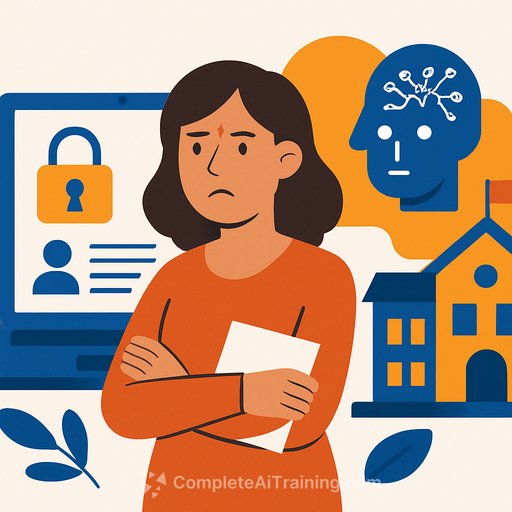Escambia County Schools Face Allegations Over Student Data Privacy and AI Use
A parent from Escambia County Public Schools has raised serious concerns about the district’s use of AI-based educational platforms potentially violating student privacy laws. Rafael Lopez filed formal complaints citing breaches of the Family Educational Rights and Privacy Act (FERPA) and Title VI civil rights protections.
Concerns Over AI Platforms and Data Collection
Lopez alleges that the district failed to properly inform parents or obtain consent before third-party AI platforms like Waterford.org and Age of Learning began collecting extensive student data. This data reportedly includes personally identifiable information, behavioral and usage patterns, learning profiles, and even biometric or indirect data such as keystroke speed and interaction patterns.
Despite Waterford claiming no active partnership with Escambia Schools since mid-2022, parents recently received promotional materials for the platform in back-to-school packets. Lopez is pushing for the school board to review these privacy concerns publicly.
Legal Requirements for Parental Consent
FERPA and the Children’s Online Privacy Protection Act (COPPA) require schools to secure parental consent before collecting or sharing student data with third parties. COPPA specifically mandates parental approval for data collection from children under 13. These laws aim to protect children’s privacy and ensure transparency in how their data is handled.
Lopez has reached out to the U.S. Department of Education and Federal Trade Commission, requesting investigations into these potential violations. He highlighted that no FERPA-compliant consent forms or detailed data-sharing disclosures were provided before his child’s enrollment in these AI programs.
District Response and Parental Rights
Escambia County Schools Superintendent Keith Leonard responded by emphasizing the district’s commitment to student data privacy. He confirmed that all vendors are contractually required to comply with FERPA and COPPA and that parents can request to deny their child’s internet access by submitting written requests to school principals.
However, Lopez insists these protections have not been adequately enforced, citing his experience of opting his child out yet still finding them enrolled in certain programs. He describes the issue as a civil rights concern, aiming to restore parental control and hold the system accountable.
Details on Data Collected by AI Learning Platforms
- Personally Identifiable Information: Student names, dates of birth, ID numbers, and sometimes parent contacts.
- Behavioral and Usage Data: Tracking login times, clicks, pauses, completion times, accuracy, and screen time.
- Learning Profiles: Reading levels, comprehension patterns, and math skills assessments.
- Biometric/Indirect Data: Keystroke speed, response times, and interaction patterns that build adaptive learning profiles.
These profiles are reportedly stored and sometimes shared with third-party servers, raising concerns about data security and unauthorized usage.
Broader Implications and Additional Concerns
Lopez points out that these issues extend beyond Escambia County, reflecting a statewide challenge. He stresses that parents are the rightful owners of their children's data, with the state acting only as custodian.
He also highlighted controversies with other platforms like Linewize and TutorMe, alleging unauthorized student surveillance and data collection without parental notification or opt-out options. Escambia Schools ceased using TutorMe after concerns about its ownership surfaced.
Education professionals should be aware of these ongoing debates around AI tools in classrooms, student privacy, and the critical role of transparent consent processes. Protecting student information is essential as technology becomes increasingly integrated into education.
For educators interested in learning more about ethical AI use and data privacy in education, exploring specialized AI training courses can provide valuable insights and practical guidance. Resources like Complete AI Training offer courses tailored to understanding AI applications responsibly.
Your membership also unlocks:





